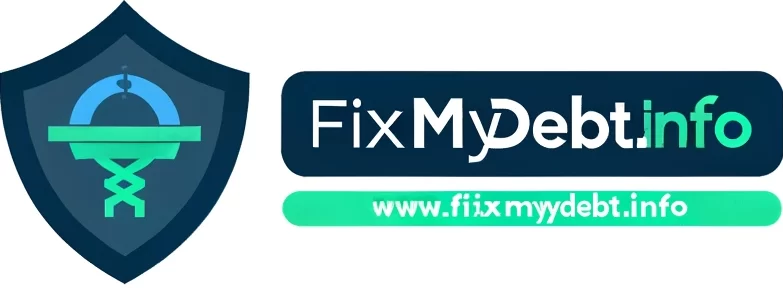Did you know there are over 165,000 professionals in the U.S. earning a solid income as writers? Despite the myth that writing isn’t a viable job, data from the U.S. Census Bureau and Bureau of Labor Statistics proves otherwise1. Many people believe you need years of experience or a fancy degree to succeed, but that’s simply not true.
Starting as a freelance writer with no background might seem daunting, but it’s entirely possible. The key lies in treating it like a business—focusing on strategy, skill-building, and persistence. Whether you’re crafting blog posts, marketing copy, or technical content, the demand for quality writers is growing2.
In this article, I’ll guide you through actionable steps to kickstart your journey. From building a portfolio to finding your first clients, you’ll learn how to turn your passion for words into a sustainable path. Let’s dive in and explore how you can make this happen.
: Understanding the Freelance Writing Landscape
Contrary to popular belief, writers are not just ‘starving artists’—many are thriving professionals. The freelance writing industry is growing, with over 165,000 full-time writers in the U.S. earning incomes that often exceed the national average3. This data challenges the myth that writing is a low-paying job and highlights its potential as a viable path.
Debunking Myths About Earning as a Writer
One of the biggest misconceptions is that writers can’t make a decent living. This belief stems from outdated stereotypes and a lack of awareness about the industry’s realities. In truth, many writers earn competitive salaries, especially those with specialized skills like technical writing or copywriting4.
Another myth is that writing is less rigorous than professions like law or medicine. However, the commitment required to succeed in this field is just as demanding. Writers must master skills like research, SEO, and client collaboration to stand out5.
Industry Data and Trends in the U.S.
According to the U.S. Census Bureau and Bureau of Labor Statistics, the median wage for writers is competitive, with hourly rates often surpassing those of other professions3. Here’s a breakdown of how writing compares to other fields:
| Profession | Median Hourly Rate |
|---|---|
| Writer | $35.00 |
| Lawyer | $60.00 |
| Teacher | $25.00 |
Understanding these trends is the first step toward building a sustainable freelance journey. By debunking myths and embracing the data, you can confidently pursue this path and unlock its potential.
: Building Your Writing Career
The path to becoming a successful writer begins with understanding your strengths and goals. Many writers start with no formal training but achieve success through focus and strategy. The key is to treat it like a business—identify your niche, hone your skills, and set realistic expectations.

Identifying Your Niche and Strengths
Start by assessing where your strengths and interests lie. Are you passionate about storytelling, or do you excel at simplifying complex ideas? Identifying your niche is crucial. For example, technical writers earn competitive salaries by breaking down jargon into digestible content6.
Here are some profitable niches to consider:
- Content Creation: Blog posts, articles, and social media content.
- Technical Writing: Manuals, guides, and instructional materials.
- Grant Proposals: Helping organizations secure funding.
Aligning your passion with market demand ensures long-term success. For instance, nonfiction writers often find steady work in industries like education and marketing6.
Setting Realistic Goals and Expectations
Success in writing doesn’t happen overnight. It takes an average of six years to traditionally publish a first book7. Set achievable, incremental goals. Instead of aiming to write a novel in a month, focus on completing five pages daily.
Here’s how to set realistic goals:
- Short-Term Goals: Complete a course or certification to enhance your skills.
- Long-Term Goals: Develop a ten-book series or build a strong portfolio.
Remember, flexibility and persistence are key. Writers who adapt to changing markets and refine their craft often achieve sustainable success8.
For more insights on building a successful freelance path, explore this resource.
: Exploring Different Paths in Professional Writing
The world of professional writing offers diverse opportunities to turn your passion into a sustainable income. Whether you dream of living off book royalties or prefer the stability of a day job, there’s no single “correct” path. Let’s explore the options and help you find the one that aligns with your goals.
Living the Dream vs. The Classic Day Job
Many writers aspire to live solely off their creative work, but this path comes with challenges. While authors like Eric D. Lehman have built successful careers with 22 published books, not everyone achieves immediate financial stability9. On the other hand, maintaining a day job provides steady income while allowing you to pursue writing on the side.
Here’s a quick comparison:
- Living the Dream: Potential for creative freedom but often involves irregular income and self-marketing.
- Classic Day Job: Financial stability with less time for creative pursuits but reduced financial stress.
Authorpreneur and Alternative Business Models
Building a brand around your writing, known as authorpreneurship, can open multiple revenue streams. For example, content strategists earn an average of $93,586 annually by combining writing with marketing skills10. This model allows you to diversify your income through courses, speaking engagements, and social media content.
Here are some alternative business models to consider:
- Hybrid Approach: Balance a part-time job with freelance projects to maintain financial stability while pursuing creative work.
- Content Creation: Focus on producing blogs, articles, or social media content for brands and organizations.
- Technical Writing: Specialize in creating manuals, guides, or instructional materials for industries like healthcare or technology.
For more insights into diverse professional writing careers, explore this resource.
Ultimately, the right path depends on your financial needs, creative aspirations, and willingness to adapt. By evaluating your goals and exploring these models, you can build a sustainable and fulfilling writing journey.
: Avoiding Common Pitfalls in Freelance Writing
Starting as a freelance writer can be rewarding, but it’s not without its challenges. Many beginners face hurdles that can slow their progress or even derail their journey. Recognizing these pitfalls early and learning how to navigate them is key to building a sustainable path.

Recognizing Early Mistakes and How to Overcome Them
One common mistake is underestimating the effort required to complete projects. New writers often delay finishing work, thinking it needs to be perfect. This can lead to missed deadlines and frustrated clients. Instead, focus on delivering quality work on time, even if it’s not flawless11.
Another issue is over-polishing early work. While it’s important to refine your craft, spending too much time on one piece can stall your progress. Set clear deadlines for each project and stick to them. This helps build discipline and ensures you’re consistently producing content12.
Finally, many writers hesitate to seek feedback. Constructive criticism is essential for growth. Share your work with trusted peers or mentors and use their insights to improve. Remember, every writer’s journey includes learning moments that eventually lead to success.
Balancing Creativity with Business Acumen
Freelance writing isn’t just about creativity; it’s also a business. Ignoring the business side can lead to financial instability. For example, 70% of freelance writers experience income fluctuations due to client turnover13. To mitigate this, diversify your client portfolio and continuously seek new opportunities.
Setting competitive prices is another critical aspect. Many new writers undercharge to attract clients, which can lead to burnout and undervaluation of their skills. Start with a pricing strategy that reflects your value and adjust as you gain experience11.
Lastly, invest in time management tools like calendars and task lists. Poor time management can result in missed deadlines and decreased reliability. By staying organized, you can prioritize your workload and maintain a steady flow of projects11.
For more insights on overcoming challenges in your freelance journey, explore this resource.
: Strategies and Tools for Launching Your Freelance Journey
Launching a freelance journey requires more than just talent—it demands strategy and the right tools. Whether you’re a beginner or transitioning from another field, building a strong foundation is key to success. Let’s explore actionable steps to help you get started.

Actionable Tips for Building Your Portfolio
Your portfolio is your first impression. It’s essential to showcase your versatility and skill. Start by selecting your best work, even if it’s unpaid or personal projects. Clients often request writing samples before hiring, so make sure your portfolio is polished and professional14.
Here are some tools to help you build a standout portfolio:
| Platform | Best For |
|---|---|
| Wix | Customizable websites |
| WordPress | Blog-focused portfolios |
| Behance | Creative projects |
Remember, a well-optimized portfolio can increase your chances of getting hired by up to 50%14. Focus on quality over quantity and tailor your samples to your target audience.
Leveraging Online Courses and Networking
Continuous learning is crucial in freelancing. Online courses can help you enhance specific skills like copywriting or technical writing. Platforms like Coursera and Udemy offer affordable options to level up your expertise15.
Networking is equally important. Studies show that 70% of freelancers acquire their first client through professional relationships15. Join industry webinars, participate in forums, and connect with peers on LinkedIn.
“Your network is your net worth. Building relationships can open doors you never imagined.”
For more insights on starting your freelance journey, check out this freelancing 101 guide.
By combining skill-building with strategic networking, you can create a sustainable path to success. Stay persistent, and remember, every step forward brings you closer to your goals.
: Conclusion
Embarking on a freelance journey as a writer is both exciting and achievable with the right approach. By understanding the landscape, building essential skills, and leveraging tools, you can turn your passion into a sustainable business.
Data shows that many professionals thrive in this field, earning competitive salaries and finding fulfillment in their work16. Whether you’re crafting content for blogs, technical manuals, or marketing campaigns, the demand for quality writers is growing.
To succeed, focus on continuous learning and adaptability. Build a strong portfolio, network actively, and set realistic goals. Remember, every step forward brings you closer to your goals.
Start planning your path today. With persistence and the right strategies, you can carve out a rewarding career as a freelance writer. Take the first step and turn your passion into a profession.
FAQ
How can I start a freelance writing career with no experience?
What are some common myths about earning as a writer?
How do I identify my niche in professional writing?
What are the differences between freelancing and a traditional day job?
What are some early mistakes to avoid in freelance writing?
How can I build a strong writing portfolio?
Are online courses worth it for aspiring writers?
Source Links
- How to Find Entry-Level Freelance Writing Jobs for Beginners – https://makealivingwriting.com/freelance-writing-jobs-for-beginners/
- How to Start Freelance Writing: The Ultimate Guide The Freelance Writer’s Guide – https://www.thefreelancewritersguide.com/blog/how-to-start-freelance-writing-the-ultimate-guide
- Freelance Writing Skills – 12 Skills Worth Mastering – https://thewritelife.com/freelance-writing-skills/
- How to Kickstart Your Freelance Writing Career – https://contra.com/blog/6Nboser6-how-to-kickstart-your-freelance-writing-career
- Navigating the World of Freelance Writing Online: Tips and Strategies – https://medium.com/@small_town/navigating-the-world-of-freelance-writing-online-tips-and-strategies-897f466f6d49
- How to Launch a Writing Career: 9 Tips – https://jerryjenkins.com/writing-career/
- Yes, You Can Make A Living As A Writer: Here’s How – https://theyoungwriter.com/yes-you-can-make-a-living-as-a-writer-heres-how/
- Designing Your Writing Career – Holly Lisle: Writer – https://hollylisle.com/designing-your-writing-career/
- 5 Steps to Start a Professional Writing Career | University of Bridgeport – https://www.bridgeport.edu/news/steps-to-starting-a-professional-writing-career/
- 10 Best Writing Careers You Should Consider – https://www.ollusa.edu/blog/writing-careers.html
- You’re starting a freelance writing career. What pitfalls should you steer clear of? – https://www.linkedin.com/advice/3/youre-starting-freelance-writing-career-what-pitfalls-should-1rvpe
- 7 Mistakes Every Freelance Writer Should Avoid – https://www.mediabistro.com/go-freelance/business-basics/7-mistakes-every-freelance-writer-avoid/
- The #1 Mistake I Made In My Freelance Writing Career + How To Avoid It | Hustle and Hearts – https://hustleandhearts.com/1-mistake-made-freelance-writing-career-avoid/
- 7 steps to starting a freelance writing career – https://www.withmoxie.com/blog/how-to-get-started-as-a-freelance-writer-in-7-easy-steps
- How I Built a Successful Freelance Career from Scratch – https://medium.com/@midwestblogging66/how-i-built-a-successful-freelance-career-from-scratch-ab867893288b
- Conclusions | Harvard College Writing Center – https://writingcenter.fas.harvard.edu/conclusions

